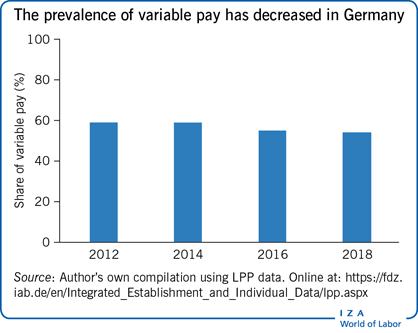Elevator pitch
Economists have for a long time argued that performance-based bonuses raise performance. Indeed, many firms use bonuses tied to individual performance to motivate their employees. However, there has been heated debate among human resources professionals recently, and some firms have moved away from individual performance bonuses toward fixed wages only or collective performance incentive schemes such as profit-sharing or team incentives. The appropriate approach depends on each company's unique situation, and managers need to realize that individual bonus plans are not a panacea to motivate employees.

Key findings
Pros
Bonuses may raise performance when objective measures are available that assess the key aspects of performance and if workers have sufficient leeway to increase their performance.
Bonuses motivate people who exhibit low task motivation.
Team bonuses can raise performance as peer effects and social preferences can mitigate the so-called free-rider problem.
Cons
Bonus schemes can cause distortions when employees work on multiple tasks and efforts for important tasks are hard to assess.
Performance-based bonuses may have limited effects for employees with a conscientious personality.
Bonus payments may affect, and potentially even undermine, other management practices used to motivate employees.
Bonuses based on individual performance often have to rely on subjective performance evaluations and these evaluations tend to be biased.